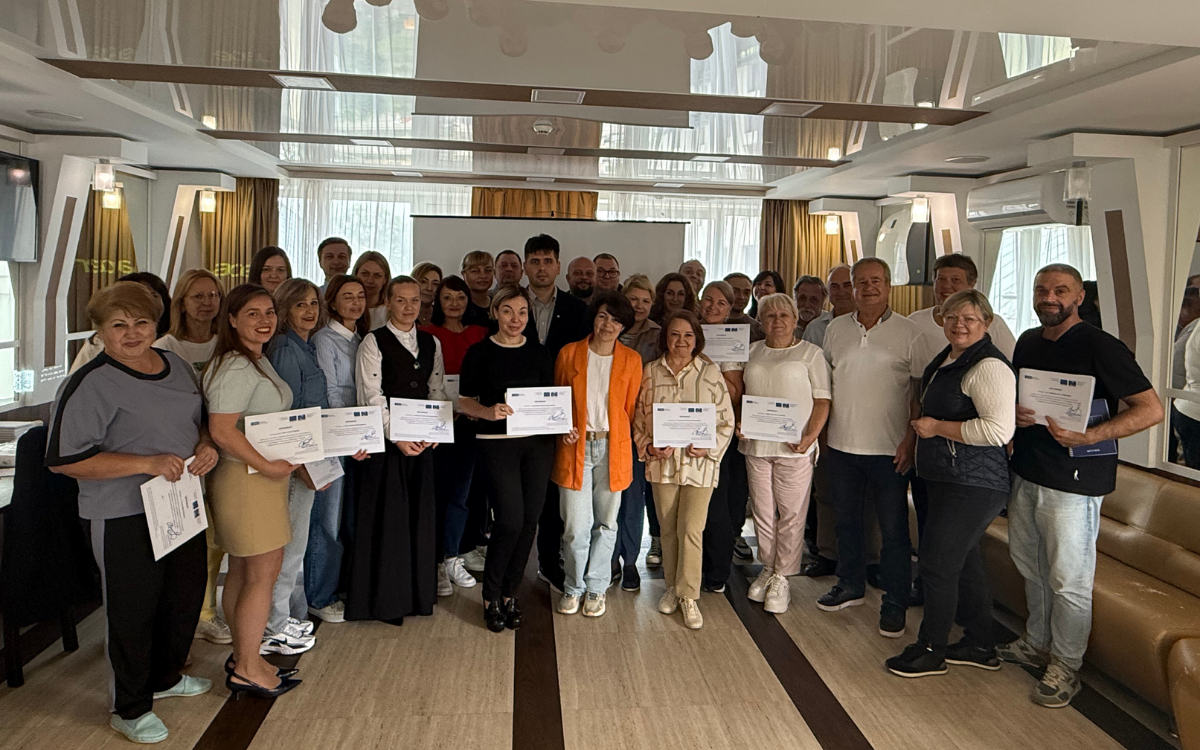
“Fundamentals of Law-Making with the Application of Anti-Discrimination Policy”: Training
01 october 2025
Law-making must be grounded in human rights, public welfare, and democratic values. In well-established democracies, these principles are often taken for granted and require little explanation. At the same time, even EU Member States are not immune to the phenomenon of “democratic backsliding,” when democratic standards gradually weaken or are undermined. For Ukraine, which is simultaneously waging a war and moving toward European integration, establishing effective safeguards against superficial or distorted interpretations of human rights and anti-discrimination norms is particularly urgent.
Against this backdrop, on 13–14 September in Truskavets, the Rule of Law Research Center, with the financial support of the European Union and the Council of Europe, conducted a two-day training titled “Fundamentals of Law-Making with the Application of Anti-Discrimination Policy.” More than 30 representatives of the parliament, government, local councils, and civil society organizations took part in the event.

One of Ukraine’s key challenges is the “shift” of law-making to the sub-legislative level. When parliament leaves broad discretionary space for the executive branch, it not only weakens the democratic balance but also undermines public trust in institutions. Therefore, the practical component of the training in Truskavets aimed to demonstrate that high-quality law-making is impossible without sensitivity to equality and non-discrimination at the legislative level.
Participants worked together to develop skills for conducting anti-discrimination assessments. Does the text of an act conceal direct or indirect discrimination? If certain groups are placed at a disadvantage, can this be justified by a legitimate aim, and are the measures proportionate? Does the law provide effective safeguards against biased application of its norms? And when it comes to positive discrimination, does the act clearly define whom it applies to, for what period it is introduced, and which specific inequality it is intended to address?

We emphasized that not every difference in legal status amounts to discrimination. Social benefits, age restrictions, or special requirements for military service are legitimate exceptions. Formal equality is an important aspect of the rule of law—provided that it permits differential treatment only to the extent necessary to achieve substantive equality.

In the Ukrainian context, particular attention must be paid to the socialization of military experience. The atomization of individuals and social isolation create risks of authoritarianism; therefore, together with the participants, we discussed the concept of co-integration of society with people who have combat experience.
The return of veterans to civilian life must go hand in hand with society’s gradual transition toward a stable post-war democracy. This refers to transitional justice—a concept that encompasses not only the establishment of special courts but also a broader set of measures, including truth-seeking about mass violations, proportionate punishment of perpetrators, defining conditions for amnesty, and restoring trust in institutions.

Through the training, representatives of parliament, government, local councils, and civil society organizations gained additional knowledge and practical tools for implementing anti-discrimination processes in Ukraine. This is especially important in light of the EU integration “roadmap,” which sets clear tasks for the coming years: adopting by 2027 a law criminalizing hate speech, harmonizing national anti-discrimination legislation with EU law, and amending the Law “On the Principles of Preventing and Combating Discrimination in Ukraine” to account for multiple discrimination and discrimination by association. Strengthening participants’ capacity in these areas will contribute to building a more just, inclusive, and democratic legal order in Ukraine.

This event was conducted with the financial support of the European Union and the Council of Europe. The content of this material is the sole responsibility of the authors. The views expressed herein can in no way be taken to reflect the official opinion of the European Union or the Council of Europe.

